A dark afternoon in December, aged about ten, I was in a class waiting for double geography. Mr Blake breezed in, told us to put our books away and, as a treat, he read us a story. It was ‘Oh, Whistle, and I’ll Come to You, My Lad’, the famous ghost story by M.R. James.
Heads resting on our arms, we listened to this chilling tale of a scholar who takes a winter holiday at an English seaside town, finds a whistle buried in the sand engraved with the inscription of the story’s title, and makes the mistake of blowing it. An evil thing is summoned — a flapping, sheet-like, blind thing with a ‘horrible, an intensely horrible, face of crumpled linen’. Once heard, never forgotten.
That story was by a mile the most memorable single event in my umpteen years of education. The second most memorable was being read the novel Moonfleet. Being read to is among life’s most enduring memories. It’s the joy of a good story that is the point of a new museum in Oxford, which has a lease on a fantastic muddle of buildings opposite Christ Church College, acquired in 2009 thanks to an anonymous £2.5 million donation. The Story Museum — the name misleadingly suggests specimen narratives in glass cases — is currently fundraising for a much expanded centre on the site where parents and children can go.
The place is already a-buzz. Far from being a twee middle-class Disneyish set-up, it is meeting a local need to insert stories into young lives deprived of books. You might not think it but Oxford beyond the dreaming spires is an urban hellhole of burning cars, despair and unemployment: it is ranked number 32 in Crap Towns: The 50 Worst Places to Live in the UK.
One of the museum’s patrons is the award-winning author Kevin Crossley-Holland, whose dad was controller of music for the BBC’s Third Programme. He was the eldest, so he got top bunk as a child. ‘My father read us largely Celtic folk tales and I grew up on the Jacobs collection of English Fairy Tales, my favourite book. They had such an impact. That experience remains completely central to my life. That wavy line between the actual and the imaginary is infinitely elastic — within two ticks you’re in another dimension. What bothers me until I am almost sick is that just 2 per cent of parents are still reading to their children by the time they are in their last primary school year. I want to make the case for the hugely important practice of being read to.’
For Amanda Mitchison, the children’s author, being read to was a vital, if mixed experience. ‘My grandfather read Homer to us while translating from the Greek as he went along. Can you imagine! We sat there literally paralysed with boredom. Later, I was read the Paddington Bear books by my mother. For me it was a delight, though it was a total punishment for her. We sat on the sofa, my legs not touching the ground. We ate Highland toffee and went through all the Paddington books. She also read Housman to my sister, who then later read Housman to me. We had no television, you see, and it was always raining.’
But even if you fail and end up boring your children with an ill-chosen book, the experience of reading to them is seldom forgotten. For the author Anne Fine (the second children’s laureate), the very feel of books entered her brain at the age of three. ‘I remember the spongy texture of the book; it was, I think, a wartime book, with a four-line poem. “‘There’s something wrong!’ the airman cried./(He was such a splendid fella.)/And down he came by parachute./But Monty came by ’brella.” Monty was a mouse.’
Fine’s father was a post office engineer. ‘My mum was permanently knackered: she had triplets in the days before disposable nappies and there was no washing machine. I was sent off to primary school early. I can’t remember not being able to read. Later at school, Mr Simpson read us The Hobbit. We had to have our heads on our arms, resting on our desks, eyes closed. But actually I don’t like being read to. I shouldn’t say this but I can’t even listen to audiobooks of my own novels! I can’t bear the way actors act the book instead of letting the author do the work. It all conspires to annoy me. I adored reading to my own children, though. Once they got to Milly-Molly-Mandy they wanted to read to themselves. I now read to my grandchildren and I absolutely love it.’
It’s a myth that all parents used to read to their shiny-faced Ovalteenies, says Terence Blacker, the storyteller, writer and performer. His father thought storytelling was cissy, suspect and anyway the school’s job. ‘But my school only taught literature to get you through exams. My generation of private-school kids weren’t really read to — we had to get on with it ourselves, and God help you if anyone saw your lips move.’
Today we are now not just the fattest race in Europe, our slob offspring are also among the most mentally impoverished. Britain has plummeted from third to 19th in the international table of literacy in the past 12 years; 21 per cent of 11-year-olds can’t read well enough for secondary school, and more than half the nation’s five-year-olds can barely communicate.
Celebrity culture, digital TV and mindless texting have corroded an entire generation’s collective brain function. Anne Fine believes that these days most kids would rather meet an author than read their work. ‘Don’t spend money paying me to come and visit. Spend the money on my bloody backlist!’ she says passionately to schools.
The Story Museum is there to up the game a bit and provide a place where a good yarn can thrive. Whether it can reverse the outgoing tide remains to be seen. But it makes sense that Oxford, the place where Alice in Wonderland and so many other stories were born, should also be home to a mission to put stories back into childhood.
Got something to add? Join the discussion and comment below.
Get 10 issues for just $10
Subscribe to The Spectator Australia today for the next 10 magazine issues, plus full online access, for just $10.
You might disagree with half of it, but you’ll enjoy reading all of it. Try your first month for free, then just $2 a week for the remainder of your first year.

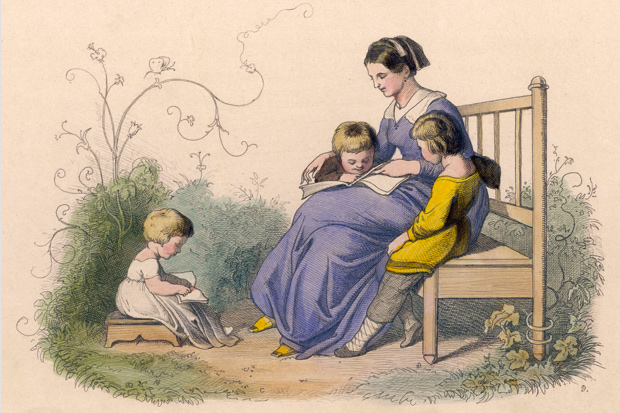
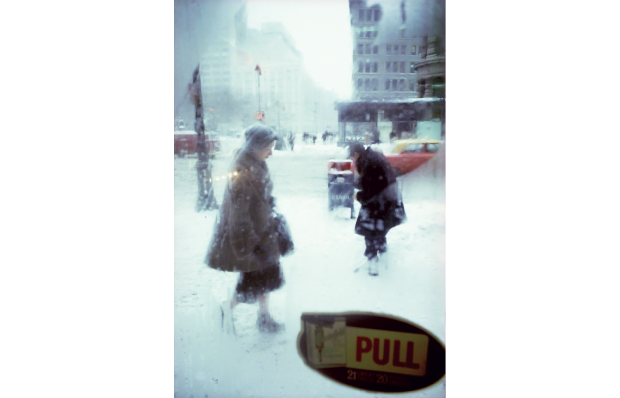

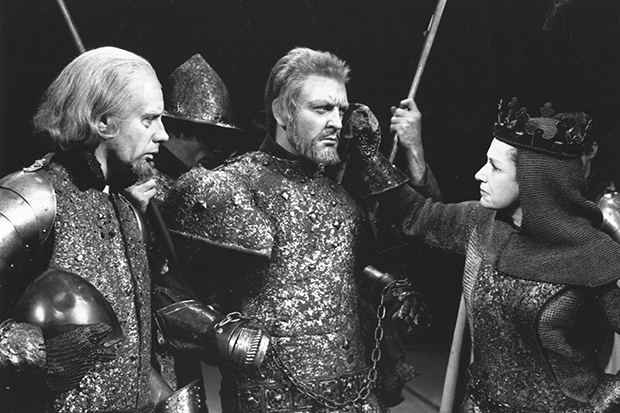
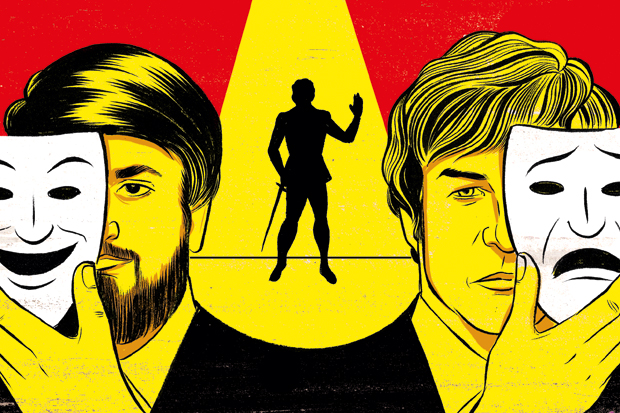
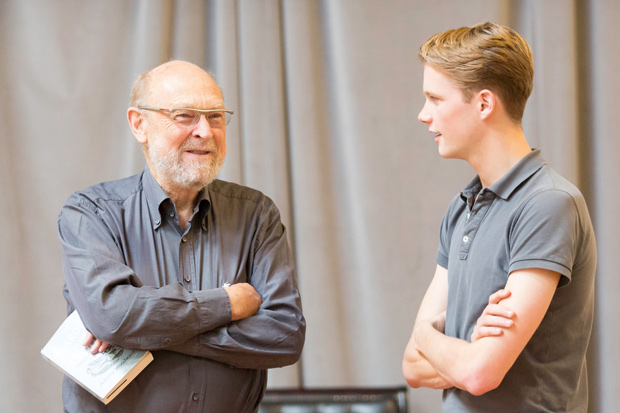
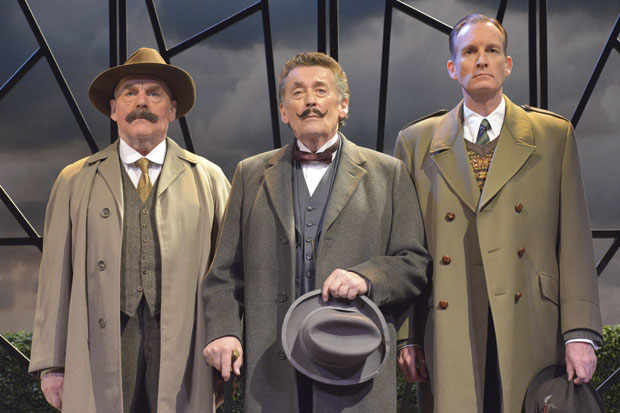






Comments
Don't miss out
Join the conversation with other Spectator Australia readers. Subscribe to leave a comment.
SUBSCRIBEAlready a subscriber? Log in